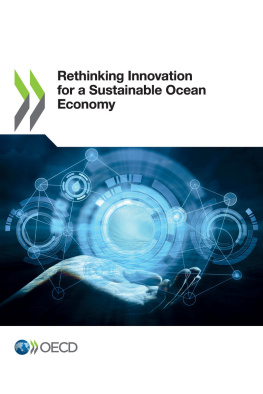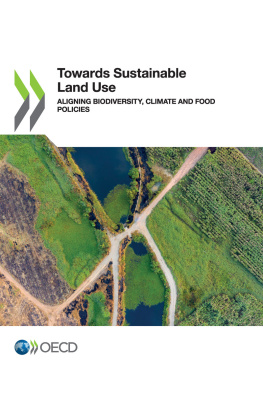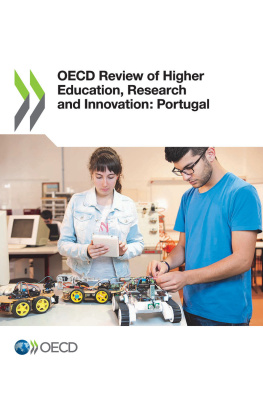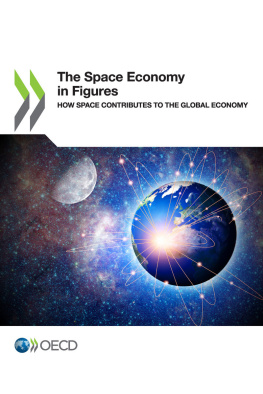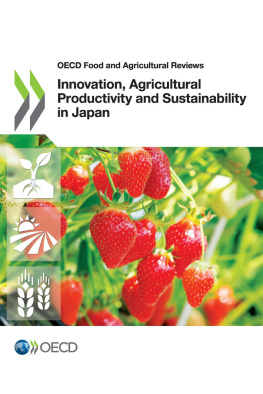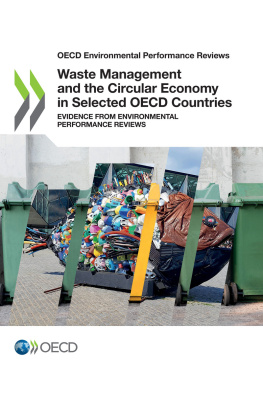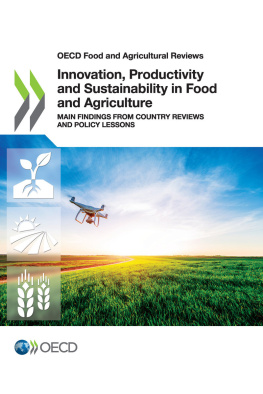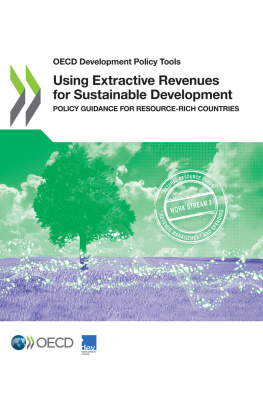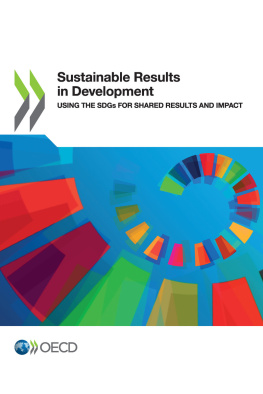OECD - Rethinking Innovation for a Sustainable Ocean Economy
Here you can read online OECD - Rethinking Innovation for a Sustainable Ocean Economy full text of the book (entire story) in english for free. Download pdf and epub, get meaning, cover and reviews about this ebook. year: 2019, publisher: OECD Publishing, genre: Politics. Description of the work, (preface) as well as reviews are available. Best literature library LitArk.com created for fans of good reading and offers a wide selection of genres:
Romance novel
Science fiction
Adventure
Detective
Science
History
Home and family
Prose
Art
Politics
Computer
Non-fiction
Religion
Business
Children
Humor
Choose a favorite category and find really read worthwhile books. Enjoy immersion in the world of imagination, feel the emotions of the characters or learn something new for yourself, make an fascinating discovery.
Rethinking Innovation for a Sustainable Ocean Economy: summary, description and annotation
We offer to read an annotation, description, summary or preface (depends on what the author of the book "Rethinking Innovation for a Sustainable Ocean Economy" wrote himself). If you haven't found the necessary information about the book — write in the comments, we will try to find it.
OECD: author's other books
Who wrote Rethinking Innovation for a Sustainable Ocean Economy? Find out the surname, the name of the author of the book and a list of all author's works by series.
Rethinking Innovation for a Sustainable Ocean Economy — read online for free the complete book (whole text) full work
Below is the text of the book, divided by pages. System saving the place of the last page read, allows you to conveniently read the book "Rethinking Innovation for a Sustainable Ocean Economy" online for free, without having to search again every time where you left off. Put a bookmark, and you can go to the page where you finished reading at any time.
Font size:
Interval:
Bookmark:
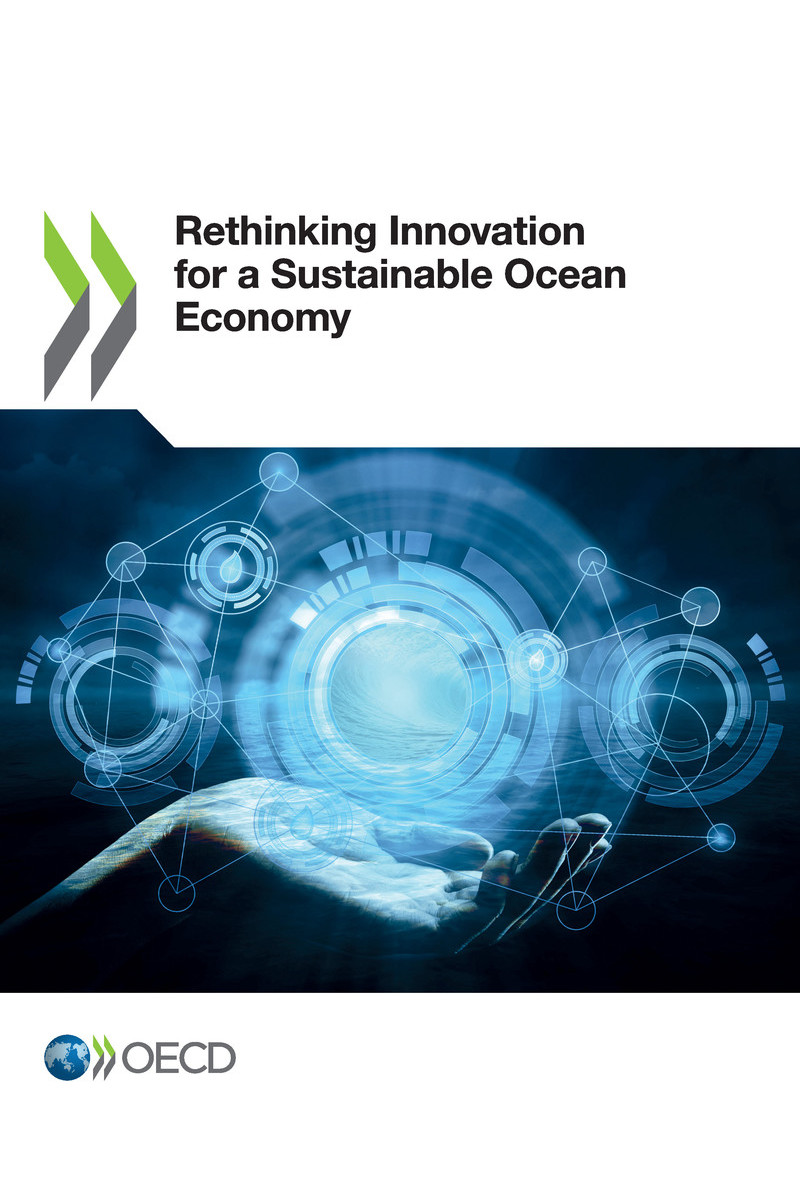
OECD (2019), Rethinking Innovation for a Sustainable Ocean Economy , OECD Publishing, Paris.
https://doi.org/10.1787/9789264311053-en
The OECD report Rethinking Innovation for a Sustainable Ocean Economy emphasises the growing importance of science and technology in managing the economic development of our seas and ocean responsibly. Marine ecosystems sit at the heart of many of the worlds global challenges: food, medicines, new sources of clean energy, climate regulation, job creation and inclusive growth. But we need to safeguard and improve the health of these ecosystems to support our ever-growing use of marine resources. Innovation in science and technology will play a key role in reconciling these two objectives.
In this context, new thinking and fresh approaches are required in many areas, placing innovation at the heart of societys response to the challenges facing the development of a truly sustainable ocean economy. This publication sets itself four objectives:
Offer a forward-looking perspective on scientific and technological innovation across a range of marine and maritime applications, with a particular focus on some of the innovations already in the pipeline (Chapter 2);
Contribute to the growing body of evidence suggesting that, with the help of innovation, the development of economic activity in the ocean and sustainability of marine ecosystems can often go hand in hand with one another, and provide a number of in-depth case studies that illustrate the potential for generating such win-win outcomes (Chapter 2);
Investigate the emergence of new forms of collaboration in the ocean economy among research communities in the public sector, the academic world and a diverse range of private-sector stakeholders, using the example of innovation networks that have sprung up in recent years around the world (Chapter 3);
Highlight new approaches to measuring the ocean economy, notably by exploring the use of satellite accounts for its twin pillars ocean-based economic activities and marine ecosystem services and by examining ways to better measure the benefits that important sustained ocean observations provide not only to science, but also to the economy and society more generally (Chapter 4).
Based on this original study, three priority areas for action are presented: 1) approaches that produce win-win outcomes for ocean business and the ocean environment across a range of marine and maritime applications; 2) the creation of ocean-economy innovation networks; and 3) initiatives to improve measurement of the ocean economy via satellite accounts of national accounting systems.
This publication is based on research and analytical work conducted by the OECD STI Ocean Economy Group in the Science and Technology Policy Division, within the Directorate for Science, Technology and Innovation (DSTI). The Innovation and the Ocean Economy programme of work, which will continue in 2019-20, builds upon six years of original OECD work on the ocean economy, featuring in particular the ground-breaking report The Ocean Economy in 2030 . These activities fit into the broader programme of work of the OECD Committee for Scientific and Technological Policy (CSTP).
The Innovation and the Ocean Economy 2017-18 programme of work was kindly supported by voluntary financial and in-kind contributions from a wide variety of government departments, agencies and research institutions, who constitute the projects Steering Board. Their contributions are acknowledged with sincere thanks. The report also benefited from contributions from many other experts, both internal and external to the OECD, and our sincere thanks go also to them. All such organisations and individuals are listed in the Acknowledgements.
This publication was supervised by Claire Jolly, Head of the Innovation Policies for Space and Ocean (IPSO) Unit, and of the OECD STI Ocean Economy Group, with research and analysis conducted by James Jolliffe, Economist, and Barrie Stevens, Senior Advisor, both of the OECD STI Ocean Economy Group. Julia Hoffman, Economist, conducted research on ocean observations, and was seconded to the OECD by the Christian-Albrechts-University zu Kiel, Germany, through the kind contributions of the Marine Research Consortium (KDM), Germany, the European Union AtlanOs Project, and the Exzellenzcluster Future Ocean Kiel Marine Science (KMS). Editorial assistance for the publication was provided by Chrystyna Harpluk, Project Coordinator in IPSO. Anita Gibson, who held the position of Project Coordinator until retirement in August 2018, organised the workshops for this project.
The Ocean Economy Group within the OECD Directorate for Science, Technology and Innovation (STI) wishes to acknowledge with sincere thanks the substantive support and funding provided to the Innovation and the Ocean Economy work programme from the following organisations, which formed the Steering Board of the 2017-18 project: the Department of Economy, Science and Innovation of Flanders, Belgium; the Danish Maritime Authority, Denmark; the Marine Research Consortium (KDM), Germany, with the European Union AtlantOS project; the Marine Institute, Ireland; the Stazione Zoologica Anton Dohrn, Italy; the Korea Maritime Institute (KMI), Korea; the Research Council of Norway, Norway; the Directorate-General for Maritime Policy (DGPM) and the Fundao para a Cincia e a Tecnologia (FCT), Portugal; the Oceanic Platform of the Canary Islands (PLOCAN), Canary Islands, Spain; Marine Scotland, Scotland, United Kingdom; and, the National Oceanic and Atmospheric Administration (NOAA), United States.
We also acknowledge, with particular thanks, the efforts of the individual members of the Steering Board and their colleagues, who have provided valuable guidance and kind support throughout the programme, including through the co-organisation and participation in OECD workshops, provision of original material, and detailed reviews of background papers that were used for this publication.
Font size:
Interval:
Bookmark:
Similar books «Rethinking Innovation for a Sustainable Ocean Economy»
Look at similar books to Rethinking Innovation for a Sustainable Ocean Economy. We have selected literature similar in name and meaning in the hope of providing readers with more options to find new, interesting, not yet read works.
Discussion, reviews of the book Rethinking Innovation for a Sustainable Ocean Economy and just readers' own opinions. Leave your comments, write what you think about the work, its meaning or the main characters. Specify what exactly you liked and what you didn't like, and why you think so.

